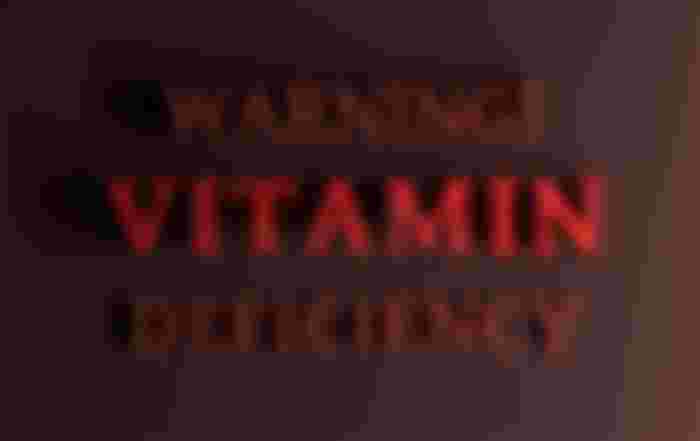Vitamins are natural substances in food, necessary for the body to function perfectly. Each vitamin has its role in the body. Vitamins are mainly active in the development of the nervous system, vision, numerous reactions in the body, but also in bone mineralization.
There are two groups of vitamins: those that dissolve in water (vitamin C and all B complex vitamins) and those that dissolve in fat (vitamins A, D, E and K). Although they are necessary for the maintenance of life, vitamins are mostly not produced in the body, but are taken in, primarily, through food.

Vitamin A and its provitamin CAROTENE
Daily needs are from one to two mg. It contains larger quantities of green vegetables, especially spinach and kale, carrots, tomatoes, primroses, peas, milk and whole milk products, dried and oily fruits, citrus fruits, bananas, peaches, cherries, eggs, liver, cereals, fish oil. Vitamin A deficiency causes vision loss at night, brittle nails, skin changes. Impact on the body: serves for growth, for building and maintaining tissues, skin and mucous membranes.

Vitamin B1
The daily requirement is about three mg. It contains larger quantities of yeast, cereal seeds, walnuts, hazelnuts, legumes, corn flour, ham, spinach, carrots, beet leaves, grapefruit. Vitamin B1 deficiency causes constipation, muscle weakness, circulatory disorders and nervous weakness. Effect on the body: affects the nerves, converts carbohydrates into body energy.
Vitamin B2 (F, G)
The daily requirement is about two mg. It contains it in larger quantities: olive oil, mushrooms, veal entrails, full-fat cheese, primrose, carrot, celery with leaves, green pepper, spinach, kale. Vitamin B2 deficiency causes inflammation of the connective tissue, cracking of the nails, headache, poor eyesight, damage to the lips, tearing and burning of the eyes. Effect on the body: converts fat into body energy; very important for the maintenance of the skin and eyes, it is considered a "beauty vitamin".
Vitamin B3
Daily requirements are from nine to 15 mg. It contains large quantities of primrose, kale, potatoes, asparagus, yeast, liver, hazelnuts, chicken, mushrooms, meat. Vitamin B3 deficiency causes: inflammation of the skin, disorders of the stomach and intestines. Effect on the body: keeps the intestines and stomach healthy, promotes growth, converts proteins into body energy.
Vitamin B4
Daily requirements are from 400 to 1,000 mg. It contains it in larger quantities: liver, yeast, carrots, mushrooms, green vegetables, rye bread. Vitamin B4 deficiency causes anemia and growth disorders. Effect on the body: helps create red blood cells, positively affects the work of metabolism.
Vitamin B5
The daily requirement is about eight mg. They contain it in larger quantities: grapefruit, strawberries, oranges, cabbage, cauliflower, carrots, wheat germ, yeast, eggs, mushrooms, pork. Vitamin B5 deficiency causes movement disorders, headaches. Impact on the body: important for metabolism and weight maintenance; makes the body resistant, one of the "beauty vitamins", important for hair.
Vitamin B6
The daily requirement is about six 6 mg. It is contained in larger quantities: potatoes, bananas, carrots, legumes, dry yeast, spinach, wheat, peanuts, kale, lemon, pears, salmon, liver, hazelnuts, pork. Vitamin B6 deficiency causes: weight loss, nausea, fainting. Effect on the body: together with vitamin B3 and tissue hormones, it is important for protein exchange.
Vitamin PP (niacin, nicotinic acid)
The daily requirement is about 30 mg. It contains it in larger quantities: peppers, oranges, buckwheat, eggs, mushrooms, liver, heart, brain, fish, crabs, meat, legumes, whole grains, prunes. The deficiency causes a disorder of digestion and the nervous system, pellagra. Effect on the body: participates in the work of metabolism, is involved in the metabolism of sulfur, responsible for the functions of the epithelium and nervous tissue.
Folic acid / PGA (BC, vit. M)
The daily requirement is five mg. It contains it in larger quantities: spinach, liver, yeast, oranges, parsley, carrots, potatoes, wheat, peanuts, cucumbers, bananas, cherries, lemons, prosciutto. Deficiency causes anemia, diarrhea and similar digestive problems. Effect on the body: participates in many biochemical processes, is important for cell growth and division, has a cytostatic effect, promotes the absorption of vitamin A.

Vitamin B12
Daily needs are 3 µg. It contains it in larger quantities: liver, kidneys, fish, milk, eggs, muscles. The deficiency causes a disorder during the cycle, paleness, brittle nails. Effect on the body: important for the maturation of red blood cells.

Vitamin C
Daily requirements are 100 mg. It contains larger quantities of cabbage, spinach, peppers, tomatoes, citrus fruits, currants, strawberries, cauliflower, pomegranate, kale, horseradish, kohlrabi, onions, radishes, veal offal, parsley, prosciutto, blueberries, artichokes, nettles. Deficiency causes bleeding gums, fatigue, irritability, fainting. Effect on the body: strengthens the defense system, participates in the absorption of iron.

Vitamin D
Daily needs are 2.5 - 10 µg. It is contained in larger quantities in olive oil, milk, fish oil, sardines, eels, herring, liver, eggs, spinach, beets, cabbage, carrots, salads, tuna. Vitamin D deficiency causes improper leg development, bad teeth and skeletal deformation.
Effect on the body: important for the metabolism of calcium and phosphorus, the body only produces it under the action of sunlight.

Vitamin E
Daily requirements are 12 mg. It contains it in larger quantities: milk, wheat germ, vegetable oils, eggs, walnuts, almonds, hazelnuts, green vegetables, especially watercress salad, liver. Vitamin E deficiency causes anemia in babies, skin changes, and general malaise. Effect on the body: preserves and stabilizes cells, prevents oxidation of unsaturated fatty acids.

Vitamin K
Daily requirements are 1.5 mg. It contains it in larger quantities: cabbage, spinach, tomato, soy, cauliflower, carrots with leaves, prosciutto, whole grains, milk, oranges, nettles. The disadvantage is that the blood does not clot. Effect on the body: affects blood clotting and blood count, has an analgesic effect in cancer.

The best way for vitamins, minerals and other nutrients to get into our body is definitely the food we eat every day. A good, balanced diet, filled with plenty of water and vegetables, low-fat milk and dairy products, lots of fiber, healthy oils, good protein and whole grains - makes a great foundation for your long-term health.








sure...i agree